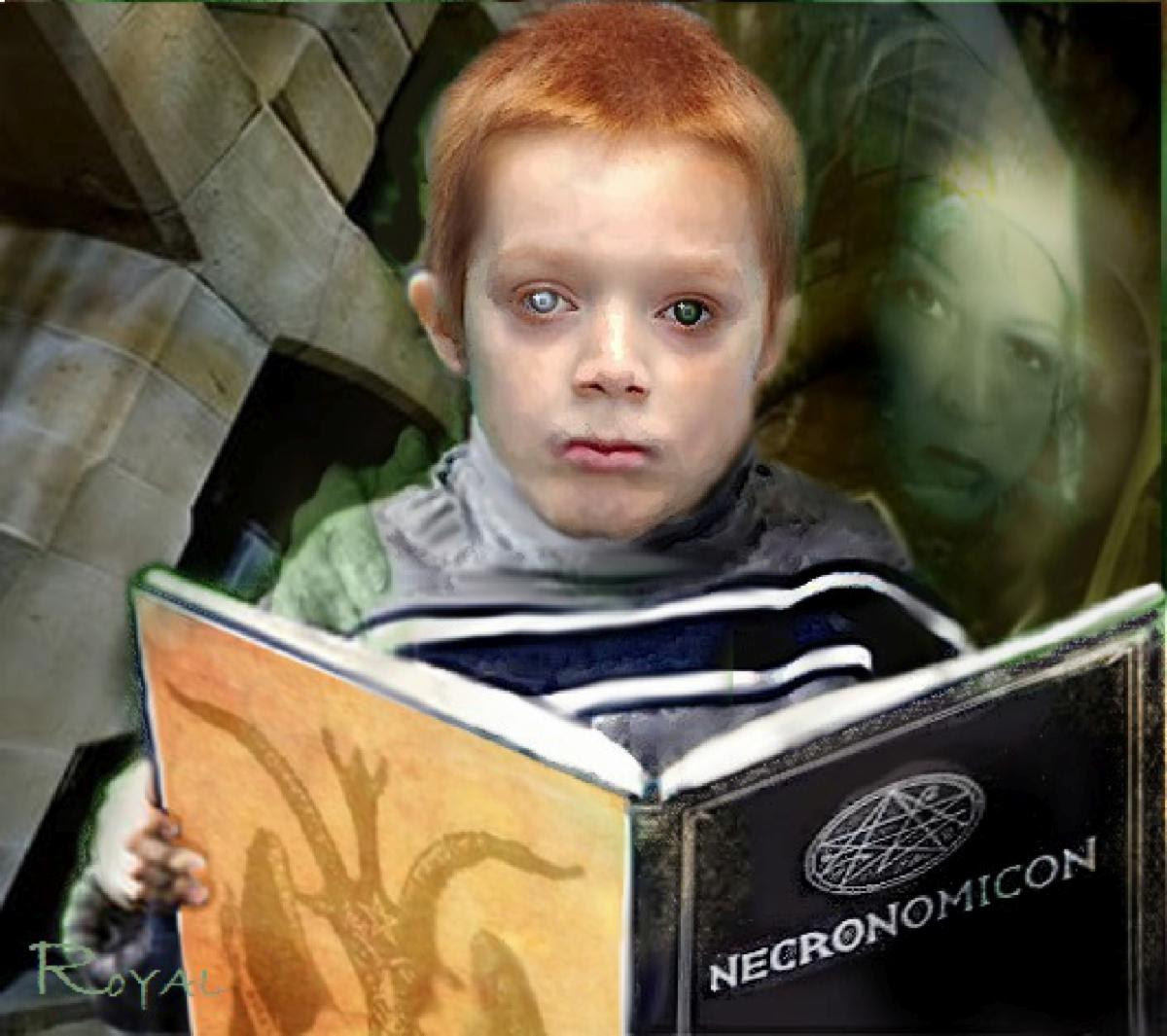If you’re a fan of the work of Douglas Preston and Lincoln Child, I’m guessing you already subscribe to their newsletter. In case you don’t, I’m copying the most recent one here. They link to The Poisoned Pen’s website for a signed copy of the upcoming Nora Kelly book, The Scorpion’s Tail. But, they also have a tale to tell. If you’ve missed the earlier parts of the story, they link to that as well. Enjoy!

| Dear Reader, Here is the fourth installment of the story of Roger Smithback’s search into the mysterious past of A.X.L.Pendergast. If you haven’t read the first three parts to the story, you can do so at this link. Before we launch into the story, we wanted to let you know of a few things you might find interesting. To order a double signed, first edition copy of the new Nora Kelly novel, THE SCORPION’S TAIL, click here. The book comes with a collectible postcard of Doug on horseback, exploring the remote White Sands of New Mexico, available nowhere else. |
 |
| Doug will be giving an online class called Writing Wild with the bestselling author Hampton Sides. In three presentations spread over three days in early December, Hampton and Doug will teach participants the secrets of narrative non-fiction writing about adventure—including natural science, environmental politics, adventure sports, exploration, and exotic travel. If you have an interest in writing adventure stories for publication and would like to learn more about taking this class, click here. With our warm regards, Doug & Linc |
Part 4
The strange spell that had come over the room was broken by the entrance of the maid carrying a silver platter. Madame Brissot drew what sounded like a quiet sigh of relief as the woman laid out china tea cups, cream and sugar and a plate of beignets.
“Thank you, my dear,” she said to the maid, who curtsied and left.
She removed the tea cozy and poured out cups for both of them, adding milk and sugar. “Now, where was I?” she asked.
“The burning of the Pendergast mansion,” Roger Smithback replied. “Rochenoire.”
“Yes. Of course.” She took a sip of tea. “The family had a library, with books going back centuries. There were quite a few strange Pendergast ancestors, I’ve been told, mad scientists and quack doctors and what have you, and some of those books were not suitable for a boy, especially one like…like the brother of Aloysius.”
Curious, Smithback thought, how this old woman seemed so hesitant to mention the name of Diogenes.
“He was a very curious boy—in the wrong sort of way,” she went on. I’m told he spent days in that library, wheeling the ladder with the brass wheels about, squeak squeak squeak, and climbing up for the most obscure books kept intentionally on the top shelves. He got his hands on a book called the Quinque Capitulis de Lucifugus Rofocalus—the The Five Chapters of Lucifuge Rofocale.“
“I’m not sure what that means.”
“Lucifuge Rofocale is the name of a lesser demon. But not all that lesser, if you understand me; only one step below Lucifer himself. As I understand it, I mean.”
“I see.” Smithback pushed the cell phone that he using to record a little farther across the tea table. How would this ancient matriarch know about such things? He wondered if it had anything to do with her unwillingness to mention the boy’s name aloud.
“It was an old book, published in the 16th century. According to the story I heard, he, ah…he decided to follow the directions in the book to raise that particular demon. While he couldn’t exactly read Latin fluently, he apparently puzzled his way through it.”
“How old was he then?”
“Eleven. Perhaps twelve—a precocious twelve. The book, unfortunately, outlined a hideous, five-step path to raising this demon. It involved the killing of certain animals in particular ways, the collection and burning of certain herbs, and the digging up of coffins to retrieve…certain items.”
“Jesus,” said Smithback.
“Good to invoke that name,” said Brissot. “Dogs and cats began turning up killed and mutilated. Everyone was terribly upset. You can imagine the effect that had in that wealthy quarter of town. Other religions—or rites, if you will—besides Christianity run deep in New Orleans, and fear of them has never fully gone away. The mutilations were most hideous.”
“Um, can you tell me what sort?”
The old woman went still again for a long moment. Finally, she said: “No. No, I won’t.”
When the old woman refused to give him any details about what Diogenes had done, Roger Smithback nodded.
“But it was the disturbing of the dead that put the neighborhood in a real uproar. Not far from the mansion, on Basin Street, is St. Louis Cemetery No. 1, one of the most famous in New Orleans. It is where Marie Laveau is buried.”
“Marie Laveau?”
“The voodoo queen, or so it’s claimed. One wouldn’t actually dig up a body in New Orleans, of course, because of the water table. But several mausoleums were broken into—he was good at picking locks, I was informed—the marble coffins inside smashed, and the dead disturbed.”
“How?”
Brissot paused, and gave a long sigh. “Removal of hair. Fingernails. Teeth. I won’t say anymore, except that these acts followed, to the letter, the directions in that terrible book. You can imagine the uproar this caused. But nobody knew who was perpetrating it—except one person. Her name was Josephine Villere, a rather strange, middle-aged French lady, and she was the Pendergasts’ cook. She caught…the boy one day with pieces of one of the animals he butchered. She confronted him, and he brazenly admitted what he was doing. She tried to get him to stop, but he simply taunted her, daring her to reveal it, and finally—after the incidents in the cemetery—she told his parents.”
“Do you have their first names?”
“Linnaeus and Isabella.” She paused to sip her tea and pick up a beignet.
“The parents were horrified and tried to speak to their son about it, but he was obdurate and defiant. So they made arrangements to send him away to boarding school, as they had done with Aloysius. He was furious at the cook for telling on him, and so he—what is the word?—framed her.”
“How did he do that?”
The woman nibbled on her beignet.
“At this point, young man, you understand that everything I’ve heard is second-hand. I can’t be sure how much is true, although I suspect that most or all of it is. In any case, it was apparently fiendishly clever for such a young boy. He killed a cat, mutilated it, put it in her freezer, and contrived for it to be found. Word got out, the neighborhood was in an uproar, and a group assembled and arrived at the house to demand the cook come out. They were going to take her to the police station. Or so they said later. But from what I heard, it looked more like a mob than a posse comitatus. Mr. and Mrs. Pendergast, who of course knew the cook was innocent but didn’t want the truth to be revealed, came out to try to reason with the crowd. There were some who’d been drinking, of course. I also believe there was an agitator in the crowd: a person from a family with a long, enmity to the Pendergasts, going back centuries. That, at any rate, was what Bertin told me.”
“Do you know the name of this other family?”
“Barbeaux. Over the generations, the Pendergast family had accumulated more than their share of enemies, for a variety of reasons. In any case, the parents refused to give up the cook; the crowd got unruly; shots were fired; and then, somehow, that fire was started. Bertin thought the Barbeaux family member might have done it under the cover of the unruly crowd. But today, it’s impossible to know for sure. But it was a dreadful fire, and it was hungry. That was an old house, with many wooden timbers, stuffed with bric-a-brac, books and papers. The parents didn’t escape, nor did poor Villiers, but Bertin, who knew about the passageway out of the crypt and had a key to its entrance, managed to save the young boy who was the cause of it all, along with some servants. He led them downstairs and through the secret passage to safety. Of course, as soon as the fire started in earnest, the crowd dispersed. Nothing could be proved and nobody was arrested. The ruins of the house were bulldozed. It was a vacant lot briefly, before the entire area was sealed in asphalt.”
She finished her tea and poured herself another, Smithback hadn’t touched his, so enthralled was he by the story. He now took a few gulps and ate a beignet.
“I wonder,” he asked, “does that passageway still exists?”
“You’d have to break into the Pendergast mausoleum at St. Louis No. 1 to find out. I would not think that advisable.”
“Right. Of course.”
She finished her second cup of tea and said, brightly, “Well, we’ve had a lovely tea, but it is now time for my rest.”
Smithback thanked her most effusively and went off, so thrilled with what he’d learned that he even smiled at the sour-faced butler.
Next on the agenda: breaking into the Pendergast mausoleum.
